These early years are a crucial time for building a strong foundation in mathematics. Preschoolers are like natural mathematicians. Let’s capitalize on this special time and learn about what math for preschoolers should really look like. Save this post along with you other preschool math activities.
In this blog post, we’ll dive deep into math education for preschoolers. We’ll explore why early math skills are essential, discuss key math concepts suitable for preschoolers, and provide practical tips and activities to make learning math engaging for preschoolers and easy for teachers.
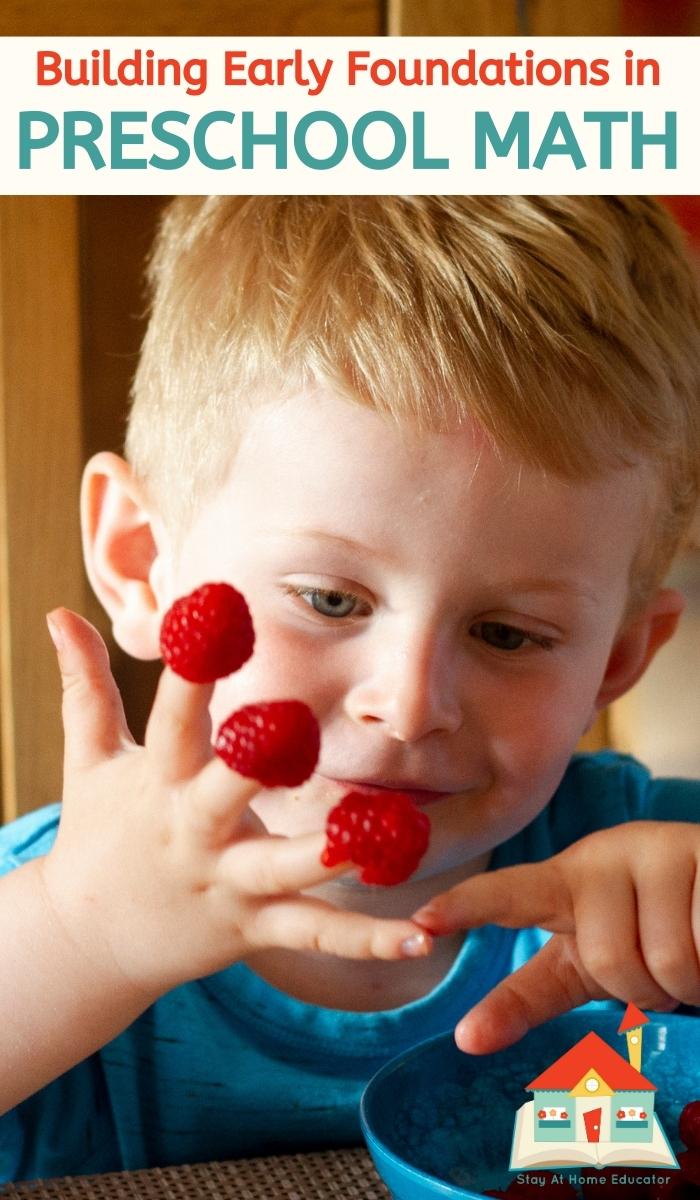
Preschool is a golden opportunity to introduce young children to the rich tapestry of mathematical concepts. While it might seem early, these formative years lay the foundation for a lifelong journey in math.
It’s important to remember that the key to teaching math in preschool is making it fun, hands-on, and relevant to a child’s everyday experiences. They should be developmentally appropriate.
These early math skills provide a strong foundation for more complex mathematical concepts as children progress through their education.
Our Daily Lessons in Preschool Mathematics Curriculum does just this: it’s hands-on as well as systematic, so you always know what math skills to teach and when.
-
Product on sale
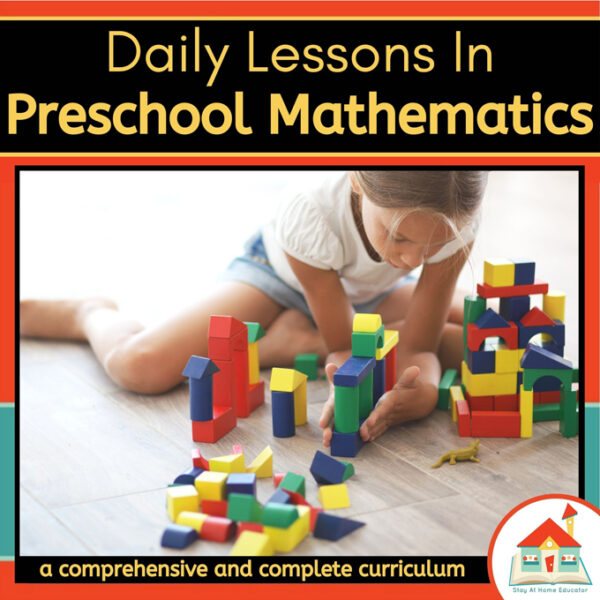 *** Daily Lessons in Preschool Mathematics CurriculumOriginal price was: $135.00.$99.00Current price is: $99.00.
*** Daily Lessons in Preschool Mathematics CurriculumOriginal price was: $135.00.$99.00Current price is: $99.00.
Preschool Math Skills
To effectively nurture preschoolers’ mathematical abilities, it’s crucial to understand the five key disciplines of math and how they apply to this age group.
- Number Sense
- Number sense forms the bedrock of mathematical understanding.
- Number sense skills include: concepts of counting, recognizing numerals, and understanding basic numerical relationships.
- Geometry and Spatial Sense
- Preschoolers are like budding architects and artists, exploring shapes, sizes, and spatial relationships.
- Activities involving shape recognition, block play, and even tangrams can nurture their geometric understanding.
- Measurement
- Although it might seem basic, measurement is a fundamental skill preschoolers can grasp through hands-on exploration.
- Measurement skills include: comparing the length of sticks, weiging objects with scales, and exploring concepts like heavy and light, big and small.
- Algebraic Patterns & Sorting
- Patterns and sorting skills both fall under the algebraic strand of math.
- Patterning skills include recognizing, creating, and extending patterns.
- Sorting skills include matching, comparing, sorting, ordering, and classifying.
- Data Analysis
- Preschoolers can begin to gather and interpret simple data in the form of graphing.
- Preschool graphing skills include measuring data and using graphs and charts to analyze data.
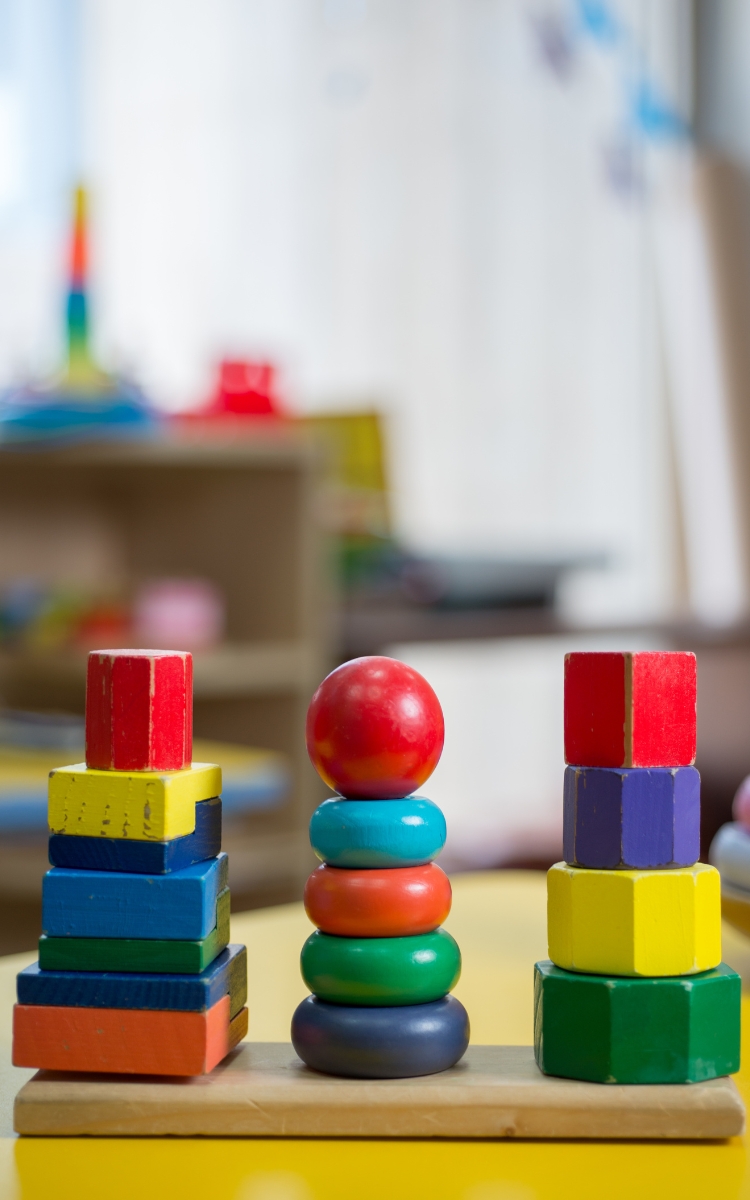
How to Teach Math to Preschoolers
Teachers leverage children’s inherent curiosity to explore and comprehend the world using mathematics.
They capitalize on preschoolers’ natural and informal encounters with math concepts, offering them the language and tools to articulate those concepts. Essentially, teachers integrate math into children’s daily experiences.
That said, just as mathematical concepts build upon one another, so should math lesson plans. Preschool math curriculum should offer sequential and systematic instruction in the five disciplines of math stated above.
The Daily Lessons in Preschool Mathematics Curriculum is a spiraling preschool math curriculum. It revisits and reinforces previously taught concepts, ensuring that students continuously build and retain their math skills. This approach is possible because the math concepts follow a sequenced progression of skills.
-
Product on sale
 *** Daily Lessons in Preschool Mathematics CurriculumOriginal price was: $135.00.$99.00Current price is: $99.00.
*** Daily Lessons in Preschool Mathematics CurriculumOriginal price was: $135.00.$99.00Current price is: $99.00.
Teaching Math to Preschoolers
Teaching math to preschoolers through a combination of printables, games, and worksheets offers a diverse and engaging learning experience.
The NAEYC recommends using various learning contexts to teach math to preschoolers, including small-group, large-group, and one on one. Printables, games, and worksheets can be used in any of those contexts.
Printables help introduce fundamental concepts like numbers, shapes, and patterns in a visually appealing manner.
Games make learning fun and interactive, fostering skills such as counting, sorting, and problem-solving.
Worksheets provide opportunities for practice and fine motor skill development.
Together, these resources create a well-rounded group of hands-on math activities that cater to different learning styles. The three approaches are carefully considered and included in the Daily Lessons Curriculum.
Preschool Math Printables
Preschool math printables provide a structured yet flexible way to introduce young learners to foundational math concepts. These printables often feature engaging visuals and interactive activities, making learning math an enjoyable experience for preschoolers.
Here are some of the most effective math printables for preschoolers.
- Counting Printables
- Shape Printables
- Sorting Printables
- Patterns Printables
- Graphing Printables
- Measurement Printables
-
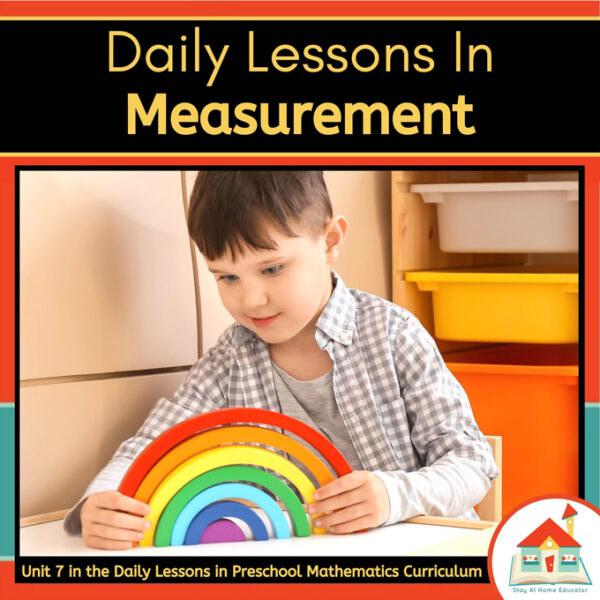 Daily Lessons in Measurement Preschool Math Unit$16.00
Daily Lessons in Measurement Preschool Math Unit$16.00 -
Product on sale
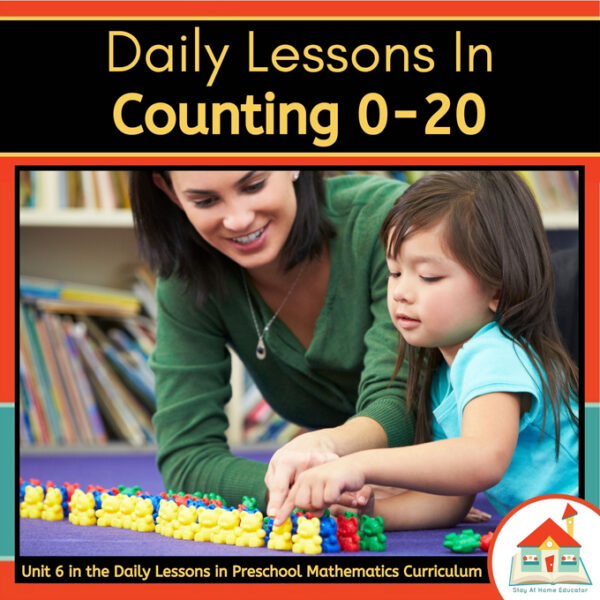 * Daily Lessons in Counting Preschool Math Unit BundleOriginal price was: $48.00.$39.00Current price is: $39.00.
* Daily Lessons in Counting Preschool Math Unit BundleOriginal price was: $48.00.$39.00Current price is: $39.00. -
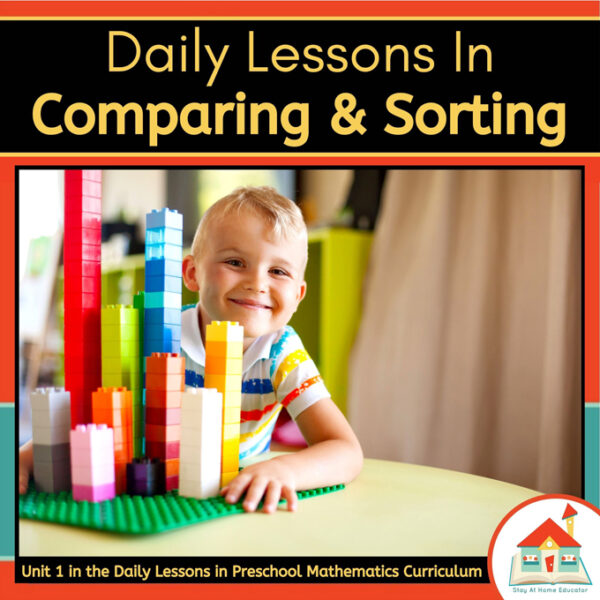 Daily Lessons in Sorting Preschool Math Unit$16.00
Daily Lessons in Sorting Preschool Math Unit$16.00 -
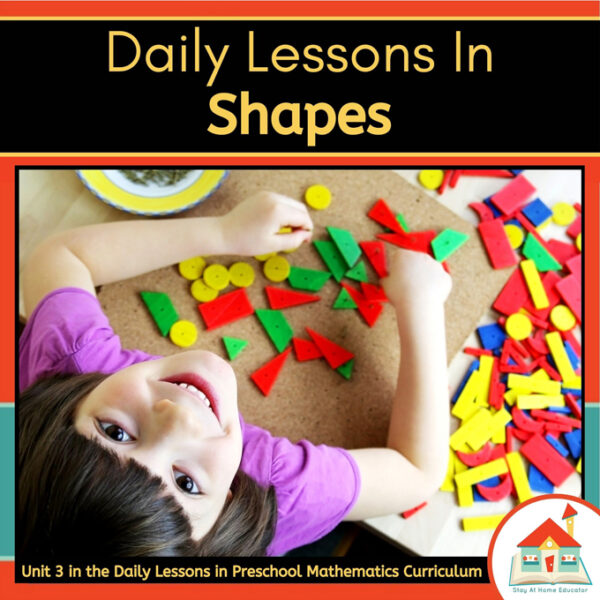 Daily Lessons in Shapes Preschool Math Unit$16.00
Daily Lessons in Shapes Preschool Math Unit$16.00 -
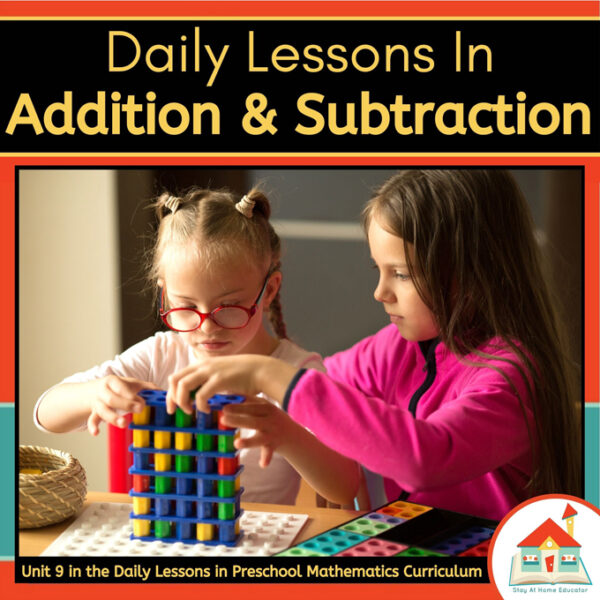 Daily Lessons in Addition & Subtraction Preschool Math Unit$16.00
Daily Lessons in Addition & Subtraction Preschool Math Unit$16.00 -
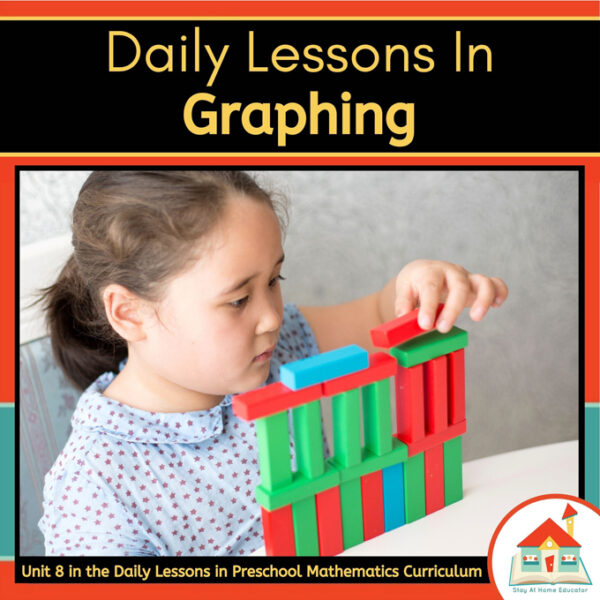 Daily Lessons in Graphing Preschool Math Unit$16.00
Daily Lessons in Graphing Preschool Math Unit$16.00 -
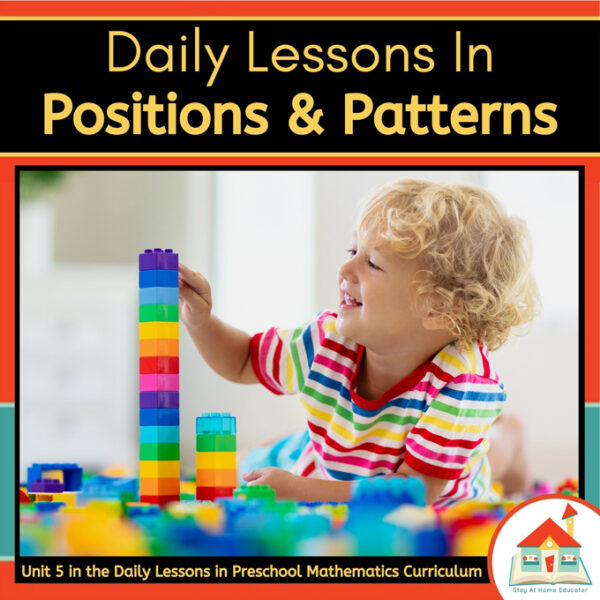 Daily Lessons in Positions & Patterns Preschool Math Unit$16.00
Daily Lessons in Positions & Patterns Preschool Math Unit$16.00
Preschool Math Worksheets
When used thoughtfully and in moderation, worksheets can play a supportive role in helping preschoolers develop essential math skills while fostering a love for learning.
However, worksheets, when used thoughtfully and in moderation, can complement these experiences. They provide structured practice and help children consolidate their understanding of key math skills like counting or recognizing numbers.
Striking a balance between hands-on activities and worksheets can create a well-rounded math learning experience, instilling essential skills while keeping the joy of learning alive in preschoolers.
Here are some math worksheets for preschoolers that are the most age appropriate.
- Counting Worksheets
- Shape Worksheets
- Sorting Worksheets
- Patterns Worksheets
- Graphing Worksheets
- Measurement Worksheets
Preschool Math Games
Math games in preschool provide an interactive way for kids to learn math while having fun.
Whether it’s counting, sorting, or pattern games, they help children develop essential skills while enjoying themselves. These games also make math enjoyable and approachable, fostering a positive attitude towards the subject.
Games also encourage teamwork, language development, and critical thinking, benefiting both social and cognitive development. In a nutshell, math games create an exciting and engaging preschool learning environment that nurtures early math skills.
Here are some of our favorite math games for preschoolers.
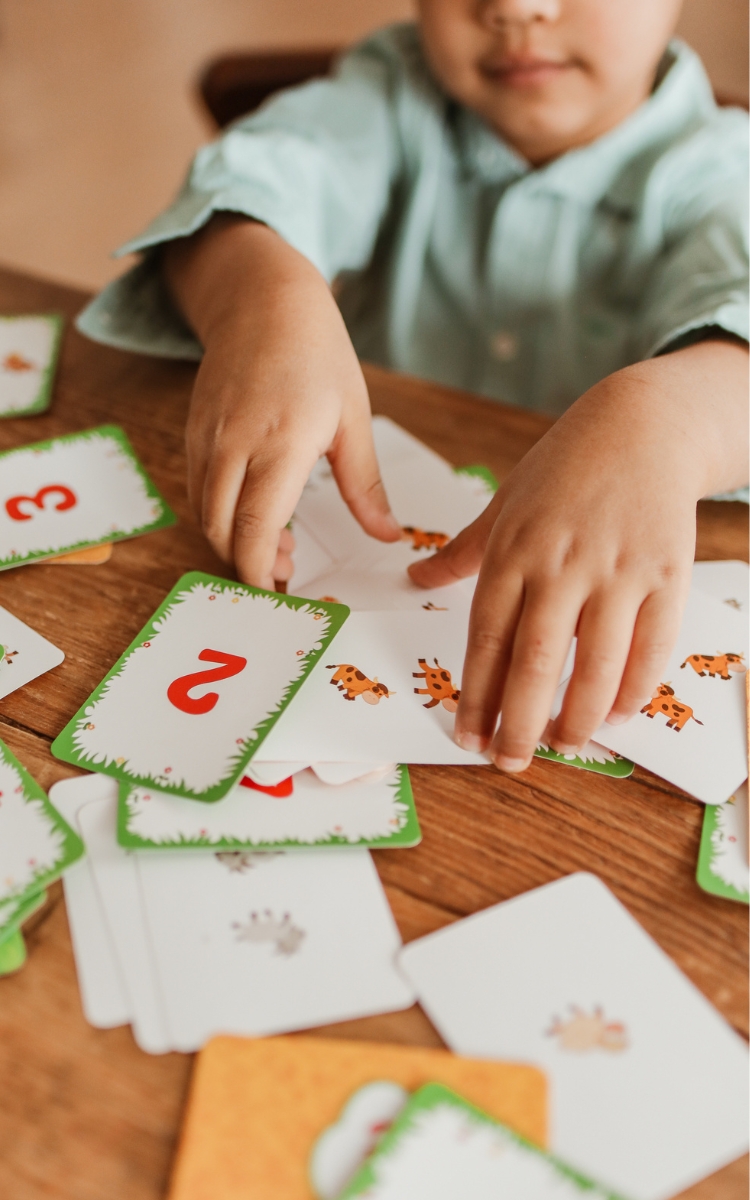
Math Books for Kids
Picture books are a fantastic tool for teaching math concepts to preschoolers.
The colorful illustrations and engaging stories capture children’s attention while introducing important mathematical ideas in an accessible and enjoyable way.
Whether it’s counting, shapes, or basic problem-solving, these books make math come alive and encourage a love for learning. Here are our favorite math picture books for preschoolers.
PreK Math Lesson Plans
A systematic preschool math curriculum is designed with a clear progression of developmentally appropriate math skills in mind. It provides a structured framework for educators to follow, ensuring that each skill builds upon the previous one in a logical sequence.
This approach is essential because young learners benefit from a carefully scaffolded curriculum that aligns with their cognitive development.
Such a curriculum covers a wide range of math concepts, from basic numeracy and counting to more complex skills like patterns and measurement, all tailored to the preschool age group.
By offering a systematic and explicit approach, this curriculum supports educators in providing a strong foundation in math for young children, setting them on a path of mathematical success.
Here are some resources for how to write prek math lesson plans in a systematic way.
- Counting Lesson Plans
- Shapes Lesson Plans
- Sorting Lesson Plans
- Patterns Lesson Plans
- Graphing Lesson Plans
- Measurement Lesson Plans
- Addition Lesson Plans
-
Product on sale
 *** Daily Lessons in Preschool Mathematics CurriculumOriginal price was: $135.00.$99.00Current price is: $99.00.
*** Daily Lessons in Preschool Mathematics CurriculumOriginal price was: $135.00.$99.00Current price is: $99.00.

I’m Sarah, an educator turned stay-at-home-mama of five! I’m the owner and creator of Stay At Home Educator, a website about intentional teaching and purposeful learning in the early childhood years. I’ve taught a range of levels, from preschool to college and a little bit of everything in between. Right now my focus is teaching my children and running a preschool from my home. Credentials include: Bachelors in Art, Masters in Curriculum and Instruction.












